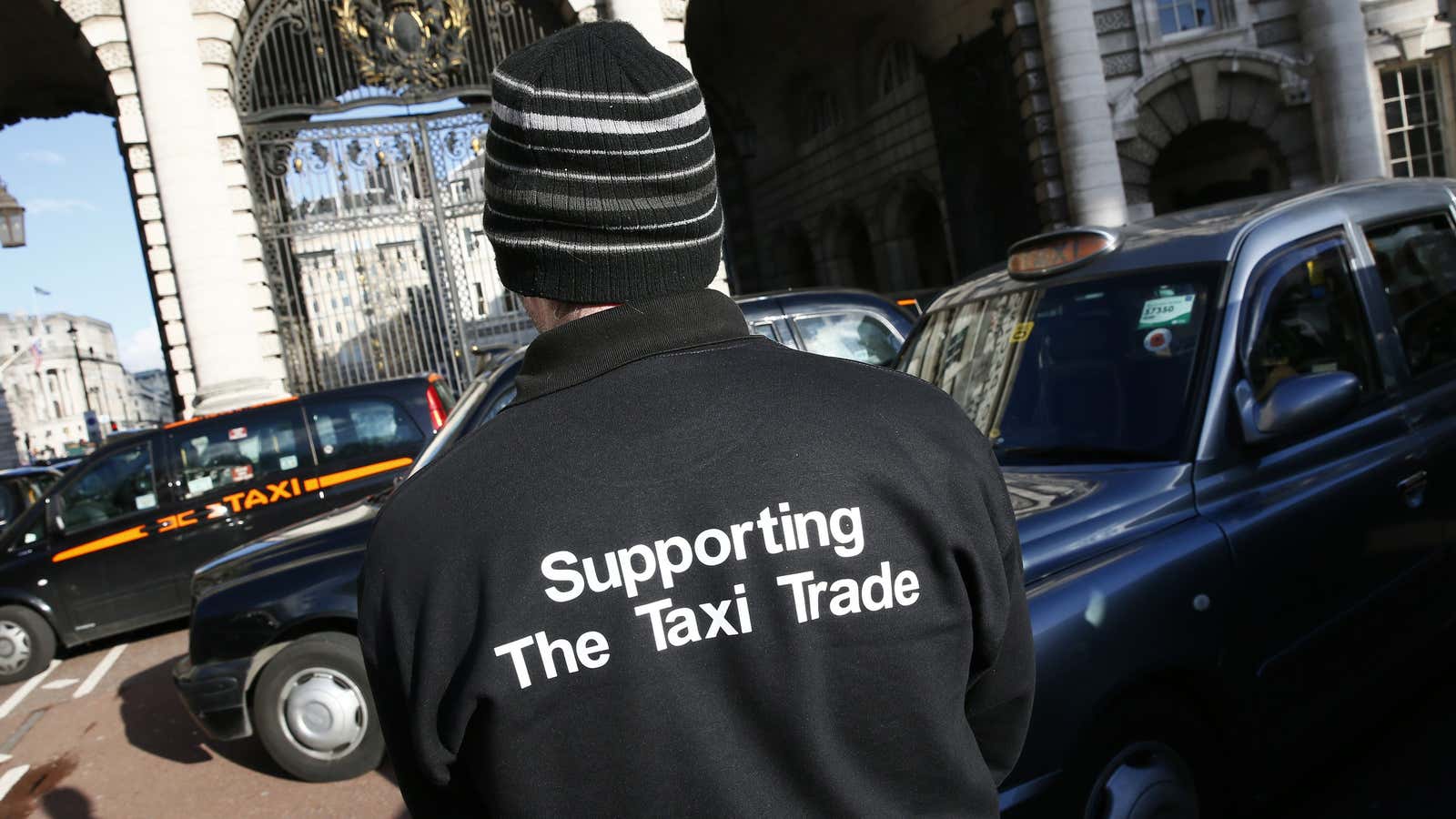A UK court just shot down Uber’s appeal against a ruling made last year. In effect, the court says Uber drivers should be treated as workers, and thus deserve basic workers’ rights, such as minimum wage and holiday pay.
The UK has three categories of employment: contractors, workers, and employees. Workers receive more protections than contractors, but fewer than employees. Uber currently treats its drivers as contractors, which allows the company to save as much as 30% on its costs to operate a fleet of 40,000 drivers. That allows Uber to charge lower fares, which has been crucial for its rapid growth.
Last year, two Uber drivers—Yaseen Aslam and James Farrar—sued the company for avoiding its full responsibilities as an employer. The employment tribunal ruled in their favor, but Uber appealed. Today (Nov. 10), the employment appeal tribunal has ruled against Uber.
“Almost all taxi and private hire drivers have been self-employed for decades, long before our app existed,” says Tom Elvidge, Uber UK’s general manager. “The main reason why drivers use Uber is because they value the freedom to choose if, when and where they drive, and so we intend to appeal.” The case could go to the Supreme Court.
If Uber loses the case in the Supreme Court, it could be handed a hefty bill. The company’s drivers would be allowed to backdate their claims, up to two years previous to the initial ruling in October 2016. “Uber should start putting their house in order immediately,” says Paul Jennings, a partner at Bates Wells Braithwaite, who were representing Aslam and Farrar.
Uber’s woes in the UK are getting worse. Apart from the employment case, London’s transport authority refused to renew Uber’s license to operate in the city in September, citing the company’s approach to reporting crime, vetting its drivers, and its Greyball surveillance program that tracked politicians hostile to its service. Uber has appealed against the decision, and continues to operate in London for now.
The taxi-hailing service is also being sued by the UK lawyer Jolyon Maugham for avoiding value added tax (VAT), a type of sales tax paid on goods and services. Maugham argues that Uber is providing a service, and like other taxi companies, should pay the 20% tax on top of its normal fare. Like in the employment case, if Maugham wins the case, Uber will be due a hefty bill to the UK treasury on backdated VAT claims, likely in the hundreds of millions of dollars.
